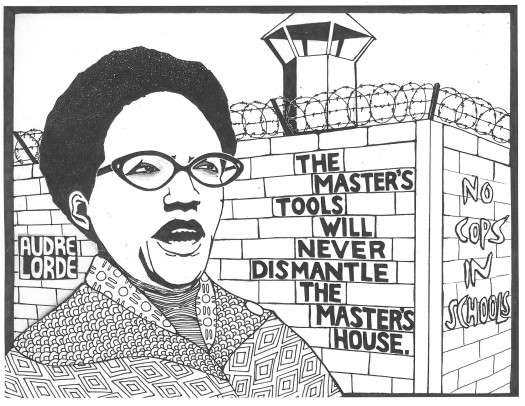from Dreaming Freedom Practicing Abolition

Abolition is truly a project that requires balance. It is a negative and positive project. It is presence and absence. Often, we lean one way to the detriment of the other way. Inside, we tend to focus on the dismantling, the negative aspect. We are captive in an oppressive system predicated upon anti-Blackness. We are trapped in a space maintained by racialized and gendered violence. The terror is quotidian. Everyday we are under the boots of people who see us as less than human. No wonder our focus is getting rid of this system.
But then what? What have we done while inside to prepare ourselves for a world without prisons? This is the struggle I am engaged in everyday. Each day, I am fighting against the death this system has prepared for me and my peers. Each day, I am struggling to not drink the PIC kool-aid that says we are unworthy. Each day, I am locked in battle with a system that is determined to isolate and alienate us, not only from you, but from each other. But there is another fight.
Over ninety percent of incarcerated folks have a release date. We are coming home. What are we doing to prepare ourselves for that date? The system is rigged. It is designed for us to fail, to recidivate. No DOC is really going to prepare incarcerated folks for successful reentry. No DOC is going to prepare any of us for a world without prisons. No DOC teaches accountability. Punishment, yes. But not accountability. And we desperately need to learn accountability.
In 2019, I was asked to speak at annual assembly on responsibility. I saw this as an opportunity to speak on accountability. I knew it would be the first time many incarcerated folks engaged in a discussion on this topic. I opened by citing a question from a Vera Institute report that asked crime victims what they wanted more than anything else to happen. Audience members guessed the answer would be long term sentences or corporal punishment for people who perpetrated harm. But that wasn’t the number one answer. What people wanted most: that it never happen again, to them or anyone else.
I chose this question because I wanted the audience to know that the police could not give these people want they wanted. They only become involved after the harm has occurred. Neither could the district attorney or the judge. The DOC and the parole boards definitely are powerless to give people who have been harmed what they want most. The only people who can give them what they want is us. We have the power to make sure the harm doesn’t happen again. And just as some of us had made a decision to harm another person, we could make another decision to not repeat our behavior.
From there, I was able to springboard into a conversation on accountability. On not just being sorry, but “doing” sorry. I focused on what we could do right now to make sure we didn’t continue to harm others. I spoke about the pillars of accountability. I spoke on what it means to really be remorseful and not just regretful. I spoke on making amends. But that was one day.
What we need is sustained study and practice. What we need is community where we can practice accountability. What we need are allies that support and encourage accountability practices. And we need it now. This is one of the things we need to build if we are to create a world we can all thrive in and that doesn’t use cages to remedy harm. It’s tricky. I have to keep everyone’s humanity in the forefront of my mind. No one is disposable. And I have to be firm and require accountability from my circle.
Aishah Simmons’s new book is entitled “Love with Accountability”. That sums up what is required. Love has to be the motivation, the impetus. Accountability has to be the practice. Some days, I can keep all the balls in the air. Other days, I drop all of them. It’s tricky. But with practice, I am getting better. With comrades and allies, I am becoming more adept at loving with accountability.
Join me in this balancing act.